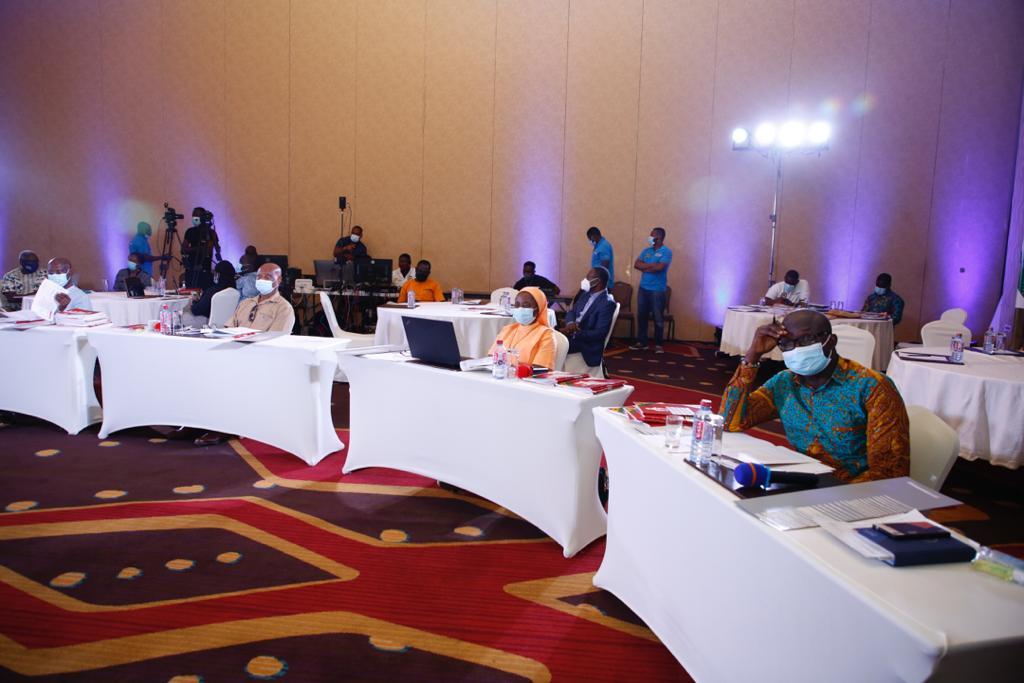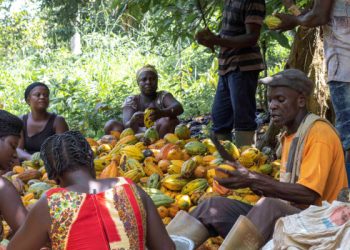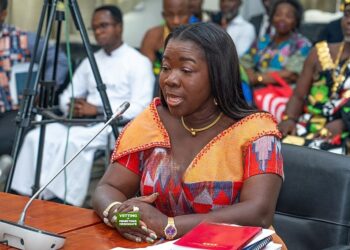Professor Wisdom Akpalu, the Dean of School of Research and Graduate Studies, GIMPA, has said the marine fish stock is over exploited through artisanal fishers and industrial trawlers activities and at the verge of collapse if nothing was done to salvage it.
He said the fishing industry contributed substantially to the Ghanaian economy, which employed about three million people and sustained livelihoods, hence the need for urgent redemption measures to avoid ecological collapse and safeguard sustainable income for artisanal fishers and the entire value chain.
Prof Akpalu was speaking during a presentation of research findings in Accra on measures to spur economic growth across all sectors of the economy to an Eminent Panel, which will rank all interventions and establish priorities for a prosperous future
as part of the “Ghana Priorities” project.
The project is an initiative being spearheaded by the National Development Planning Commission (NDPC) in collaboration with the Copenhagen Consensus Centre, an award-winning international think tank.
Prof Akpalu proposed three policy interventions; replacing illegal fishing nets, reducing the over 13,000 canoes to 9,000, and providing entrepreneurial skills training and subsidies to fishers who would lose their sources of livelihoods to venture into fish farming.
He also called for the installation of video devices in trawl vessels to monitor harmful illegal fishing practices.
He expressed the optimism that the aforementioned interventions would produce positive returns on investment and improve livelihoods.
The Ghana Priorities project seeks to place premium on the best policies for the country’s future based on cost-benefit analysis.
With regards to measures to promote industrial transformation, Prof Peter Quartey, the Director, Institute of Statistical, Social and Economic Research (ISSER), University of Ghana, outlined some key interventions to boost industrial growth.
He said government and other donor agencies needed to support management consulting services that could significantly improve factory operations and processes in areas such as quality control, human resources, inventory, and sales.
He noted that every cedi spent on improving management practices would bring a return six times higher than the original investment for large enterprises, and almost 10 times higher for medium-sized companies.
Prof Quartey said medium scale enterprises must have access to credit adding; “Financing for businesses and companies could be promoted in Ghana by ensuring better surveillance of the credit referencing system, better address systems, improving the quality of information available to lenders and enforcing a reward and sanctions regime.”
“These measures would create nearly 12 cedis worth of benefits to society for every cedi spent,” Prof Quartey said.
The renowned Economist noted that providing capital grants to selected micro enterprises was estimated to generate benefit seven times higher than the original investment.
Prof Robert Darko Osei, the Vice Dean, School of Graduate Studies, UG, explained that agriculture was a significant contributor to the Ghanaian economy and an important source of employment, with over 40 per cent of the working population engaged in farming.
He said despite growth and development dynamics, which was witnessing gradual shifting away from the agriculture sector towards industry and services, agriculture still formed a crucial part of the Ghanaian economy, and a necessary vehicle for poverty alleviation and ensuring food security.
Prof Osei noted that increasing agricultural output could be achieved through three main mechanisms; increasing arable lands under cultivation, improving crop yield, and reducing post-harvest losses.
Dr Festus Ebo Turkson and Dr Priscilla Twumasi Baffour, both lecturers at the University of Ghana, introduced the pedagogical approach of ‘Teaching at the Right Level,’ which targets instruction to the specific learning needs of children by splitting them into class groups based on learning levels rather than age, for one or two hours per day.
They said the better learning outcomes resulting from this approach would be worth 1.5 per cent of earnings over students’ lives, with every cedi spent generating social benefits worth eight cedis.
The research team that studied the cost/benefit indicators of using improved/certified seeds and fertilizer, irrigation and mechanisation to increase yields, and expanding warehousing capacity to reduce post-harvest losses recommended that subsidising fertiliser would benefit the nation four times than its initial cost.
After hearing presentations from the 28 teams of economists from Ghana and abroad over the course of three days, the Eminent Panel, including Nobel Prize recipient, Finn Kydland and six distinguished national economists, will rank all interventions and establish priorities for a prosperous future.
The Panel will present its findings on Monday, August 10, 2020.









Discussion about this post